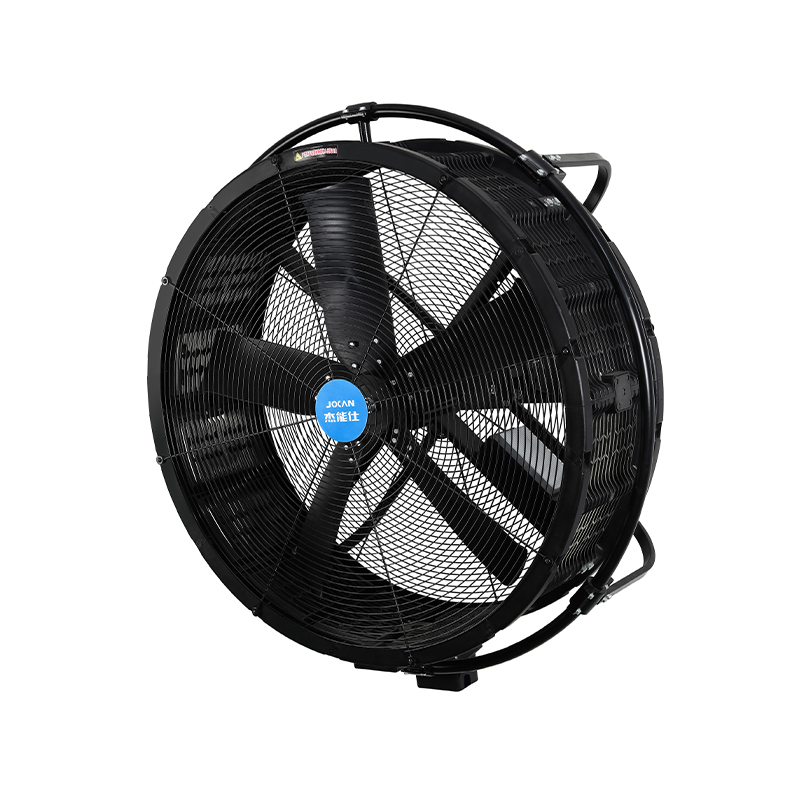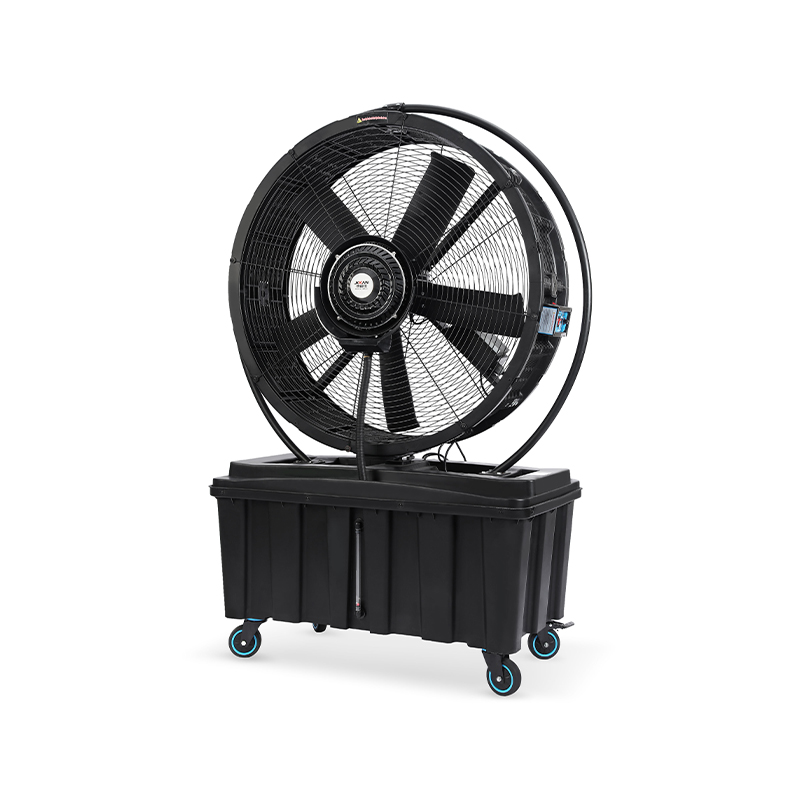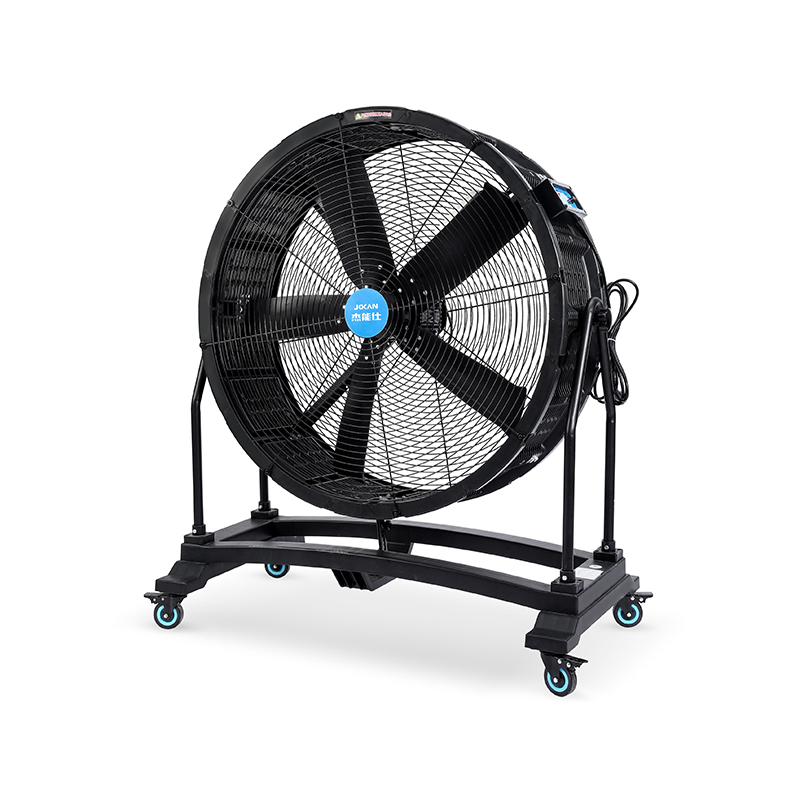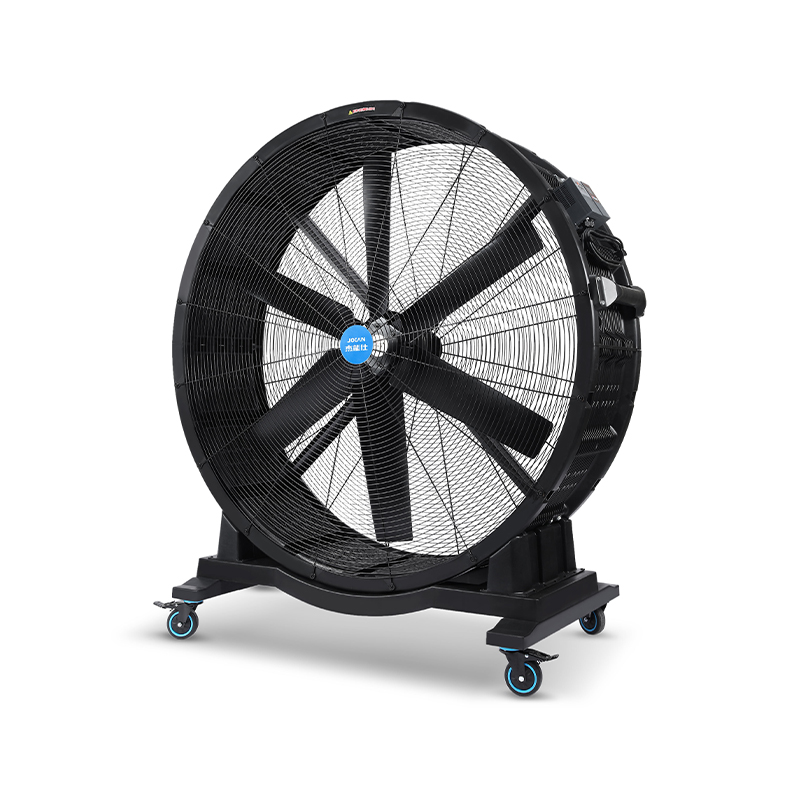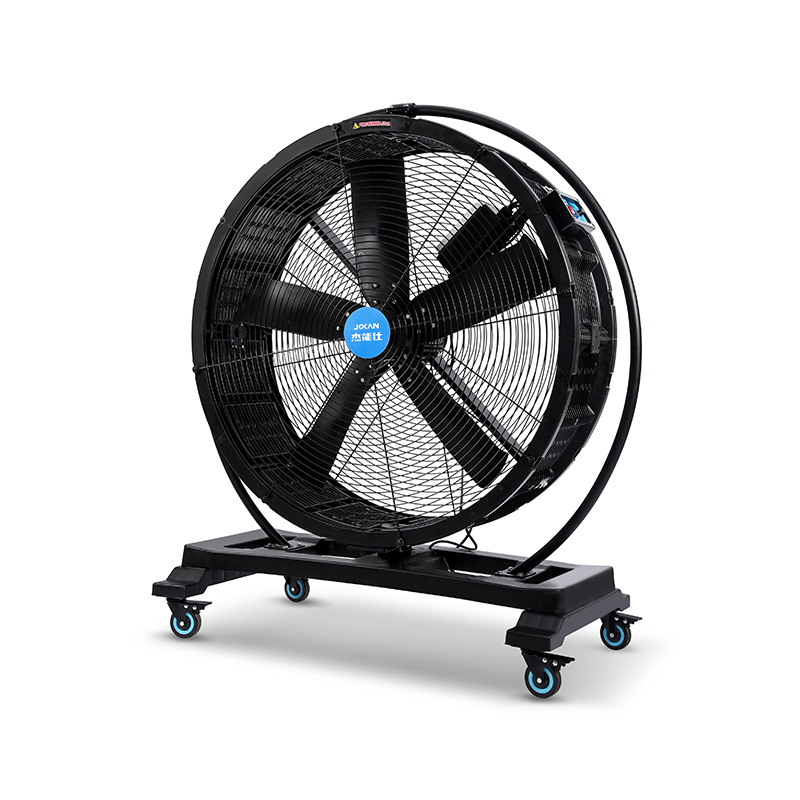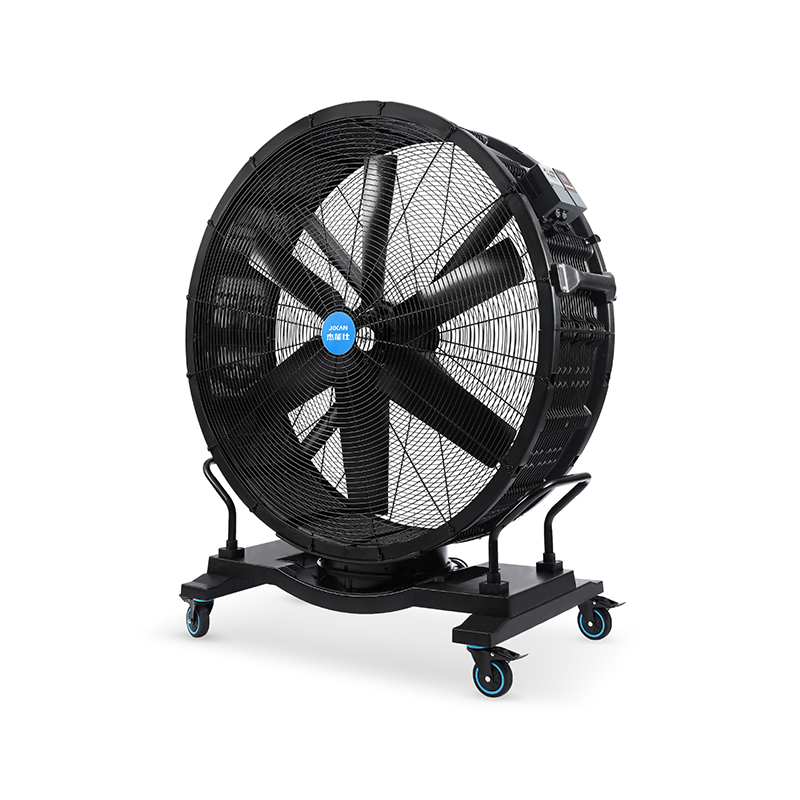The production of industrial inline duct fans, industrial air cooler fans, and industrial ceiling extractor fans is evolving with an eye on sustainability, balancing operational needs with eco-friendly methods.

One important area of sustainable practice is the choice of materials. Manufacturers now pay more attention to sourcing recyclable and durable components for industrial inline duct fans. Using materials that can be recycled at the end of the product's life helps less waste in landfills. Additionally, durable materials extend the lifespan of fans, meaning fewer replacements and less frequent manufacturing cycles. This principle applies to industrial air cooler fans and industrial ceiling extractor fans as well. By improving the longevity of these products, manufacturers reduce the environmental burden associated with constant production and disposal.
Energy efficiency is another critical factor in sustainable industrial fan manufacturing. Industrial inline duct fans, industrial air cooler fans, and industrial ceiling extractor fans are designed to operate efficiently, consuming less power during use. Engineers focus on optimizing motor designs and blade aerodynamics to lower energy consumption without compromising airflow performance. Efficient fans not only reduce operating costs for users but also contribute to lower overall energy demand, which can reduce carbon emissions linked to electricity production.
The manufacturing process itself is being revisited to support sustainability goals. Factories involved in producing industrial inline duct fans have implemented energy-saving measures such as improved lighting, machinery upgrades, and waste heat recovery systems. Similar efforts are seen in plants producing industrial air cooler fans and industrial ceiling extractor fans. Waste reduction programs aim to reuse scrap materials and have less defective production output. Additionally, many manufacturers invest in water recycling systems and pollution control technologies to lessen the impact of manufacturing on local environments.
Beyond materials and energy, transportation and logistics play a significant role in the sustainability of industrial fan manufacturing. Compact and modular designs for industrial inline duct fans help optimize shipping volumes, reducing the number of transport trips needed. This approach lowers fuel consumption and emissions associated with delivery. Industrial air cooler fans and industrial ceiling extractor fans also benefit from packaging innovations that use less material and prioritize recyclability. By streamlining supply chains and logistics, manufacturers further reduce their carbon footprint.
Sustainable practices also extend to product lifecycle management. Industrial inline duct fans are increasingly designed with easy maintenance and repair in mind. This ensures that parts can be replaced rather than the entire unit, reducing waste and prolonging service life. The same approach is applied to industrial air cooler fans and industrial ceiling extractor fans, making them more adaptable to changing user needs and reducing total environmental impact over time. Offering repair services and spare parts encourages customers to keep fans in service longer, supporting circular economy principles.
Moreover, the role of research and development (R&D) is critical in advancing sustainable industrial fan manufacturing. R&D teams work to identify new materials that are less harmful to the environment and to develop manufacturing methods that consume fewer resources. Innovations targeting industrial inline duct fans include quieter, more energy-efficient motors and lighter construction materials that reduce raw material consumption. In industrial air cooler fans and industrial ceiling extractor fans, R&D focuses on enhancing airflow control and improving thermal performance, allowing systems to operate more efficiently.
Sustainability in industrial fan manufacturing also involves compliance with environmental standards and certifications. Many producers ensure that industrial inline duct fans, industrial air cooler fans, and industrial ceiling extractor fans meet regulatory requirements related to energy efficiency, emissions, and waste management. These certifications offer customers confidence that the products they purchase come from responsible manufacturers committed to reducing their environmental footprint.
In summary, sustainable practices in industrial fan manufacturing encompass a wide range of efforts, from material selection and energy efficiency to process improvements and product lifecycle management. Industrial inline duct fans, industrial air cooler fans, and industrial ceiling extractor fans all benefit from these advances, piloting products that perform well while supporting environmental goals. As awareness of sustainability continues to grow, it is likely that the industrial fan sector will keep evolving with new solutions that balance functionality with responsible manufacturing. This ongoing progress benefits manufacturers, customers, and the planet alike.
 Add: Plot 23, Huanglang Industrial Zone, Jinqing Town, Luqiao District, Taizhou City, Zhejiang Province
Add: Plot 23, Huanglang Industrial Zone, Jinqing Town, Luqiao District, Taizhou City, Zhejiang Province
 TEL: +86-13586083215
TEL: +86-13586083215

 English
English English
English عربى
عربى 한국어
한국어


